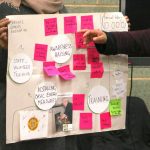Combined recipe for healthy communities
How can mayoral combined authorities use their powers and resources to keep us well? In a new programme of joint working launched last month, CLES, The King’s Fund and the Health Foundation have come together to answer this key question. This project builds on a £1.3m Health Foundation award to the West Midlands Combined Authority, who will be working in partnership with eight other combined authorities over three years to drive action on health within the regions.
English mayoral combined authorities have been established with a remit to boost sub-regional economic growth, enhance local democratic engagement and accountability and address knotty policy problems. Through their distinct powers, responsibilities and resources, they are also able to affect the wider determinants of health, such as people’s access to good quality work, transport and housing.












